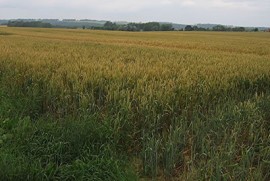
An interesting discussion this afternoon on the rising price of food and what can be done about it. Newspaper headlines claim that prices are rising by 21 per cent a year, but that’s based on very selective research. A broader based measurement looking at what people actually eat (the 21 per cent figure was based on the ingredients for pancakes) gives an annual inflation rate of 6 per cent. Still high, but not shocking.
The reasons for this rise? Speakers at the meeting suggested five:
- the rise of China and India and the concomitant increase in demand for food
- climate change, reducing the supply of some foodstuffs
- the high oil price – oil is needed for transport and making fertilisers
- the diversion of food crops into biofuels
- speculation – inflows of money from the equity and property markets looking for profits in the commodity markets instead
Opinions differed over the relative importance of each of these factors, and it is probably different from one crop to another – rice prices are rising but it is not used for biofuels, for example – but the overall trend is clear and inescapable.
Against this background, what is there that can be done? Obviously, lower trade barriers would reduce fuel prices, but there’s got to be more to it than that. The reason is that the benefits of freer trade will not necessarily be felt equally by all countries, and those countries that experience more pain than benefit have little incentive to agree a deal.
Any progress in the direction of trade liberalisation will have to be accompanied by other measures to capture and redistribute some of the benefits that liberalisation produces. But redistribution has become a dirty word all of its own.
There is an interesting reflection on the fate of the Common Agricultural Policy too. The CAP was set up to provide incentives for farmers to increase output, at the expense of the EU budget. The market would not reward such production increases, so the taxpayer would do so instead. However, prices are now rising so far that the CAP incentives are being overtaken by those provided by the marketplace. The CAP budget is not being spent, because farmers are no longer able to claim all the money. The CAP system has been widely criticised from many different directions, but I don’t suppose that anyone ever imagined it ending like this.
